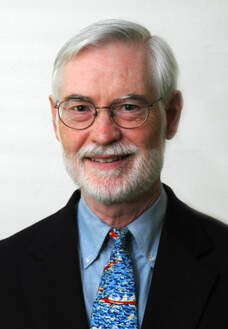ABOUT DR. OVIDE POMERLEAU

Born in Waterville, Maine, Ovide F. Pomerleau attended Bowdoin College (B.A., 1962), followed by graduate work in experimental psychology at Columbia University (M.S., 1965, Ph.D., 1969), where he trained in the laboratory of Prof. William N. Schoenfeld.
Dr. Pomerleau began his academic career in 1969 in the Temple University Department of Psychiatry, where he also obtained his credentials as a clinical psychologist. While at Temple, he set up and tested a token economy at the Philadelphia State Hospital at Byberry. This project went beyond previous work on token economies in psychiatric settings by taking into account the behavior of paraprofessional staff as well as of inpatients.
Between 1972 and 1979, he served on the faculty of the University of Pennsylvania Department of Psychiatry, where in collaboration with Dr. John Paul Brady he founded the Center for Behavioral Medicine in 1973, the first such unit in the country. The CBM developed interventions for weight management, cigarette smoking, and problem drinking--chronic behaviors associated with pathophysiology, reduced lifespan, and diminished quality of life. The CBM's focus on the application of behavior modification to medical care subsequently grew to encompass the integration of biological, behavioral, psychological, and social sciences in promoting an understanding health and disease.
Dr. Pomerleau joined the faculty of the University of Connecticut Department of Psychiatry in 1979 and began his pioneering research in demonstrating and quantitating the release of beta-endorphin and other hypophyseal hormones in response to nicotine administration in humans--effects that had previously been observed only in animals. The finding that nicotine could stimulate endogenous opioids, known to produce feelings of well-being and euphoria, drew strong opposition from the tobacco industry because of the implication that tobacco smoking might be addictive.
In 1985 Dr. Pomerleau moved his Laboratory to the University of Michigan Department of Psychiatry, where he continued to explore the effects of pharmacological probes and laboratory stressors on measures of nicotine intake and withdrawal. He also pursued parametric research on the subjective, physiological, and biochemical effects of smoking and nicotine administration in smokers, former smokers, and never smokers, leading him to propose a "sensitivity model" of nicotine addiction based on animal and human research and supported by the observation that pleasurable or euphoric responses to nicotine during early smoking experimentation predict subsequent addiction. In addition, he carried out research on the relationship of smoking with psychiatric disorders, and he and his colleagues were the first to document the link between smoking and Adult Attention Deficit Disorder. He developed a strong interest in genetics and became an early advocate of measured genetic research on smoking and nicotine addiction.
While at Michigan he played a leadership role in the founding of the Society for Research on Nicotine and Tobacco and served as its first President in 1994-95. Since his retirement in 2009, he has continued to be involved in SRNT in an advisory capacity; he has also contributed to several peer-reviewed scientists publications. Other current interests include amateur radio and the study of electromagnetic theory.
Honors:
Sigma Xi: The Scientific Research Society (1969)
Fellow, American Psychological Association
Division 25 (Experimental Analysis of Behavior)
Division 28 (Psychopharmacology and Substance Abuse)
Division 38 (Health Psychology)
Division 50 (Addictions)
Fellow, American Psychological Society
Fellow, Academy of Behavioral Medicine Research
Fellow, Society of Behavioral Medicine
Ove Ferno Award, Society for Research on Nicotine and Tobacco (2004)
President's Award, Society for Research on Nicotine and Tobacco (2016)
Dr. Pomerleau's Wikipedia entry can be viewed here.
Dr. Pomerleau began his academic career in 1969 in the Temple University Department of Psychiatry, where he also obtained his credentials as a clinical psychologist. While at Temple, he set up and tested a token economy at the Philadelphia State Hospital at Byberry. This project went beyond previous work on token economies in psychiatric settings by taking into account the behavior of paraprofessional staff as well as of inpatients.
Between 1972 and 1979, he served on the faculty of the University of Pennsylvania Department of Psychiatry, where in collaboration with Dr. John Paul Brady he founded the Center for Behavioral Medicine in 1973, the first such unit in the country. The CBM developed interventions for weight management, cigarette smoking, and problem drinking--chronic behaviors associated with pathophysiology, reduced lifespan, and diminished quality of life. The CBM's focus on the application of behavior modification to medical care subsequently grew to encompass the integration of biological, behavioral, psychological, and social sciences in promoting an understanding health and disease.
Dr. Pomerleau joined the faculty of the University of Connecticut Department of Psychiatry in 1979 and began his pioneering research in demonstrating and quantitating the release of beta-endorphin and other hypophyseal hormones in response to nicotine administration in humans--effects that had previously been observed only in animals. The finding that nicotine could stimulate endogenous opioids, known to produce feelings of well-being and euphoria, drew strong opposition from the tobacco industry because of the implication that tobacco smoking might be addictive.
In 1985 Dr. Pomerleau moved his Laboratory to the University of Michigan Department of Psychiatry, where he continued to explore the effects of pharmacological probes and laboratory stressors on measures of nicotine intake and withdrawal. He also pursued parametric research on the subjective, physiological, and biochemical effects of smoking and nicotine administration in smokers, former smokers, and never smokers, leading him to propose a "sensitivity model" of nicotine addiction based on animal and human research and supported by the observation that pleasurable or euphoric responses to nicotine during early smoking experimentation predict subsequent addiction. In addition, he carried out research on the relationship of smoking with psychiatric disorders, and he and his colleagues were the first to document the link between smoking and Adult Attention Deficit Disorder. He developed a strong interest in genetics and became an early advocate of measured genetic research on smoking and nicotine addiction.
While at Michigan he played a leadership role in the founding of the Society for Research on Nicotine and Tobacco and served as its first President in 1994-95. Since his retirement in 2009, he has continued to be involved in SRNT in an advisory capacity; he has also contributed to several peer-reviewed scientists publications. Other current interests include amateur radio and the study of electromagnetic theory.
Honors:
Sigma Xi: The Scientific Research Society (1969)
Fellow, American Psychological Association
Division 25 (Experimental Analysis of Behavior)
Division 28 (Psychopharmacology and Substance Abuse)
Division 38 (Health Psychology)
Division 50 (Addictions)
Fellow, American Psychological Society
Fellow, Academy of Behavioral Medicine Research
Fellow, Society of Behavioral Medicine
Ove Ferno Award, Society for Research on Nicotine and Tobacco (2004)
President's Award, Society for Research on Nicotine and Tobacco (2016)
Dr. Pomerleau's Wikipedia entry can be viewed here.

